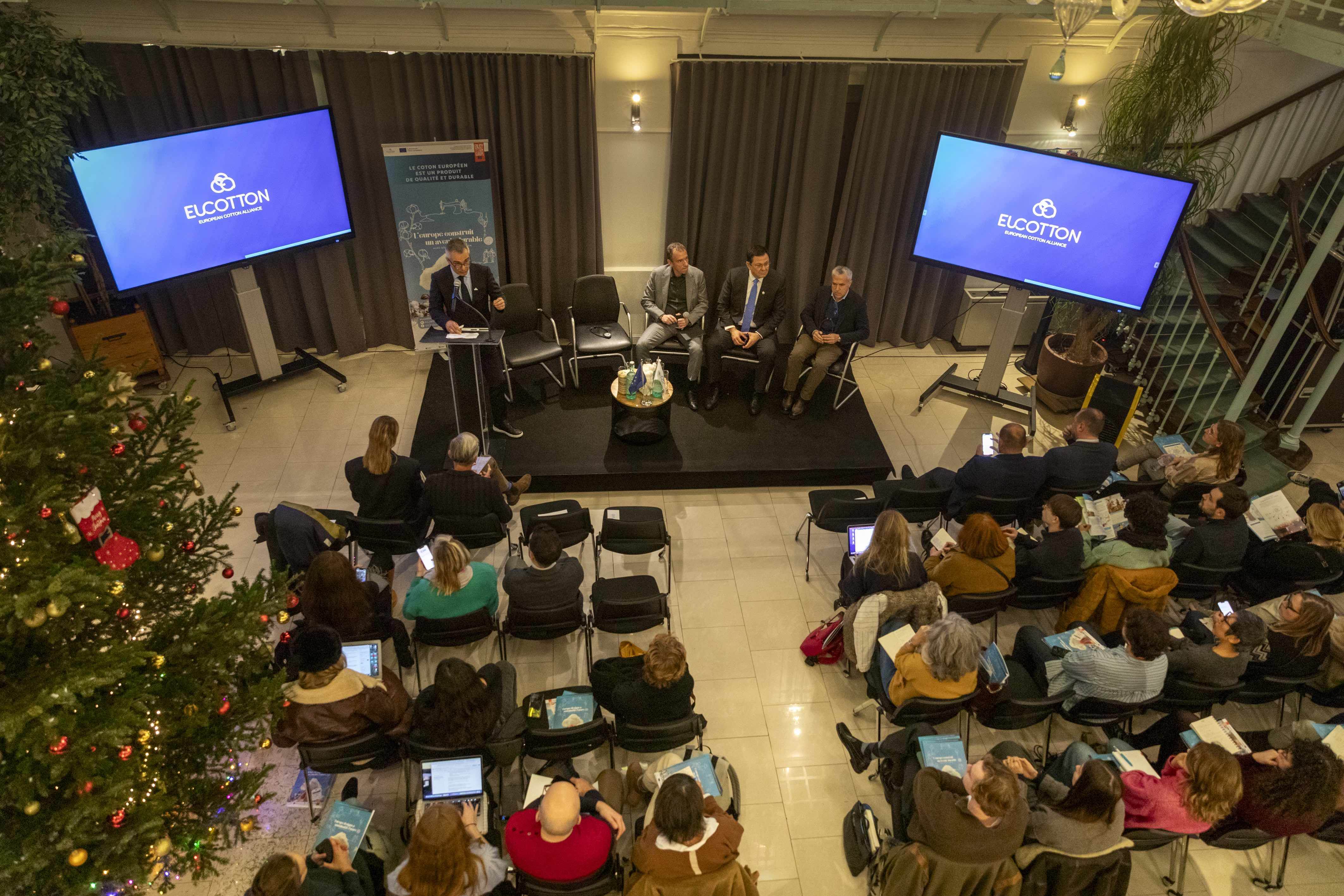EU Cotton Alliance makes a stopover in Paris
13/12/2024

Founded in 2019, the organisation seeks to encourage the uptake by European brands of locally produced cotton. Greece and Spain are the two EU member states that grow cotton, 80% coming from Greece and the remaining from Spain. “We face fierce competition from low wage countries, but EU legislation is pushing for a more sustainable fashion and textiles industry and seeks to promote traceability as well as locally made products,” said Antonios Siarkos, president of the EU Cotton Alliance and of Siarkos SA, at the event.
European grown cotton, which is highly valued on international markets for its superior quality, he said, is mostly exported, some 75% of the 360,000 tonnes of lint cotton produced in the two countries. Most of this EU-grown cotton is then re-exported back to Europe in the form of finished garments and home linens. “The European Union is not taking advantage of this potential,” he insisted.
The EU Cotton Alliance has launched a three-year campaign, backed by EU funds, to promote a local value chain, from farm to store, to the European industry. The road show has made stops in Sevilla, Munich, Rome, Bremen and Thessaloniki. In addition, a framework to trace cotton fibres throughout its transformations is in the works to offer brands and consumers a fully transparent view of the process through online digital twins, secured by blockchain and accessible via QR codes. It is hoped that these initiatives will also support near-shoring production, he added.
A EU cotton label will be awarded to products that contain at least 50% European grown cotton, and that are fully produced and manufactured in the bloc.
Farming practices in Europe are, according to the organisation, the equivalent of, or better than, organic cotton: the cotton seeds are 100% non GMO, and European farmers apply integrated management systems that are said to be similar to regenerative agricultural practices.






